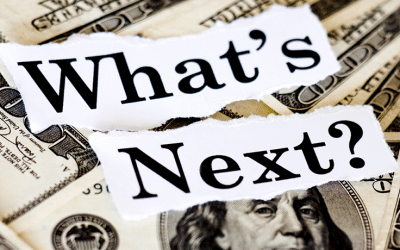Matellán: "The problems in the banking sector can hardly be extended to economy"

Redacción Mapfre
This would be the fourth bank to fail, following the collapse of Silicon Valley Bank (SVB), Silvergate and Signature. However, despite the fact that several banks have already been affected, it is not expected that these problems will spread to the U.S. economy, much less to Europe.
"There could be more problems, but always focused on the same type of bank: U.S. and medium or small-sized," said Alberto Matellán, chief economist at MAPFRE Inversión, who added that the impact is psychological. "There are a series of problems that affect them and they are still there, but they can hardly extend to the U.S. economy, let alone the European economy."
Nor does Matellán think that the persistence of these problems in the banking sector will affect the central banks' discourse, given that the latter's main reference is the macroeconomic data, which for the moment continue to support the stance expected by the market: a rise followed by a message of pause.
The chief economist does not rule out a further hike in Europe, as inflation is expected to be higher in comparison to the United States, although this will always depend on the data to be published.
On the other side of the Atlantic, one of the main problems in recent days has been the debt ceiling, as Congress is expected to raise or suspend the limit. Matellán explained that this happens very often, and considers that the main concern in this regard is not so much to agree on that ceiling, but to control the debt spiral.
Commodities
Several commodities have fallen sharply in recent days, most notably oil. In this case, Matellán pointed to several factors. On one hand, China is reporting "very good" growth data despite the fact that oil consumption is not picking up, so there could be reasons to believe that the country has the capacity to grow with a much crude.
On the other hand, analysts point out that the risk of recession has increased for the United States, and when that happens, oil consumption is usually reduced, to which producing countries have shown to have "spare capacity" to meet demand, despite the production cut announced a few weeks ago. "The question for the market is whether this can be sustained over time. I don't think prices will fall much further, but there is no reason for a big rally either," Matellán believes.
Reasons to be optimistic in equities
Uncertainty is the word most repeated by investors, firms and international organizations in recent months. "At these times it is normal to have doubts. There are factors that support both doing well and doing badly," commented the chief economist.
Among the former, he highlighted energy prices and corporate results, which support the improvement in the growth consensus and the positive growth outlook, which are not priced in. Matellán advised investors not to rush in this context. "With a well-assembled portfolio and the right targets, now is not the time to move," he advocated.



